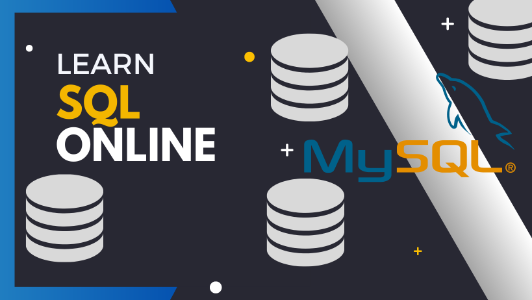SQL Complete Online Course

What will students learn in this course?
- check Creating and Managing databaseusing SQL, creation of tables, insert data, and building realtionships between the tables.
- check Updation, Deletion, and insertion data in database using SQL with database manipulation techniques.
- check Utilizing SQL functions will teach you how to format data, perform calculations, and aggregate data.
- check Knowledge of advanced SQL concepts, including subqueries, joins, views, and stored procedures, will depend on the course level.
About Course
In today's world, having precise data is crucial for success. It can be the deciding factor in excelling or falling behind in any industry. Therefore, businesses should prioritize their data management strategies to remain pertinent amidst shifting market conditions.
SQL or Structured Query Language is an integral tool for effective data management that companies should consider utilizing. SQL enables users to manage large sets of complex relational databases easily; it empowers them with powerful capabilities such as sorting, filtering & grouping entities efficiently. With SQL proficiency comes a better understanding of business operations hence giving companies a competitive edge over others who aren't using this technology yet.
Therefore, if you are looking for an everlasting solution towards intelligent decision-making based on informed facts and figures – investing your time in learning SQL would indeed be worth every effort!
What is SQL?
You can consider SQL a language for working with databases. It's user-friendly and lets you manage data easily, like adding or deleting info from a database.SQL works well for structured data too so it's great if you're trying to keep things organized! Plus, using SQL means that finding exactly what information you need is simple - just filter based on criteria or sort the data how you want it. You can even group your data which makes calculating stuff way easier!
Importance of SQL
SQL's importance lies in its ability to manage data in databases. Anyone dealing with data management needs to learn SQL, whether you're an analyst, administrator, or programmer because it can greatly enhance efficiency and productivity.
SQL allows you to:
Query and retrieve specific data from a large database with ease
Insert new data into tables
Update and modify existing data in tables
Delete unwanted data from tables
Create tables and define their structure
Create views and stored procedures to automate commonly used tasks
Efficiently manage large and complex datasets
Perform data analysis and generate reports
Integrate with other programming languages such as Python for data analysis and visualization
Syllabus
The following topics constitute the syllabus.
Introduction to SQL
Data types and Operators
Data Definition Language (DDL)
Data Manipulation Language (DML)
Data Control Language (DCL)
Querying data using SELECT statement
Joining Tables
Sorting and Filtering Data
Grouping and Aggregating Data
Subqueries
Views and Indexes
Stored Procedures and Functions
Benefits of our Online SQL Course
Our online SQL course offers numerous benefits to those interested in learning this crucial data management skill. We enable you to:
Learn and practice SQL at your own pace from anywhere in the world
Access high-quality video lectures, guided exercises, and quizzes to reinforce your learning
Receive hands-on experience with real-world datasets and scenarios
Receive personalized feedback and support from experienced instructors
Acquire a thorough understanding of SQL and its practical applications in data management
Become proficient in querying, updating, and managing data using SQL statements
Develop professional skills that can enhance your career opportunities in data-driven industries and organizations
Employment Opportunities
SQL expertise can unlock many job opportunities in diverse fields like finance, healthcare, e-commerce, and government. SQL knowledge opens up roles such as database administrators, data analysts, or programmers with excellent career growth potential across industries. Hence, possessing these competencies may result in better salaries too. Joining our course equips you for success and ensures that your value proposition remains high to prospective employers.